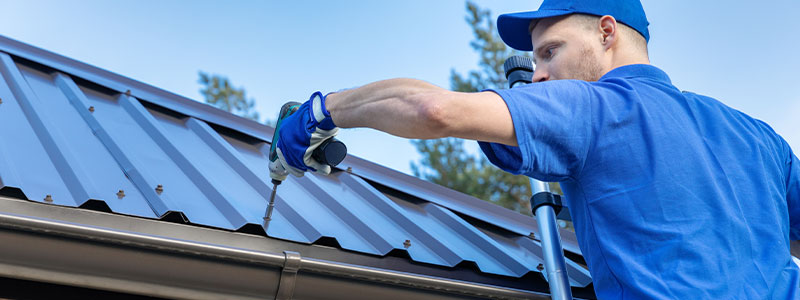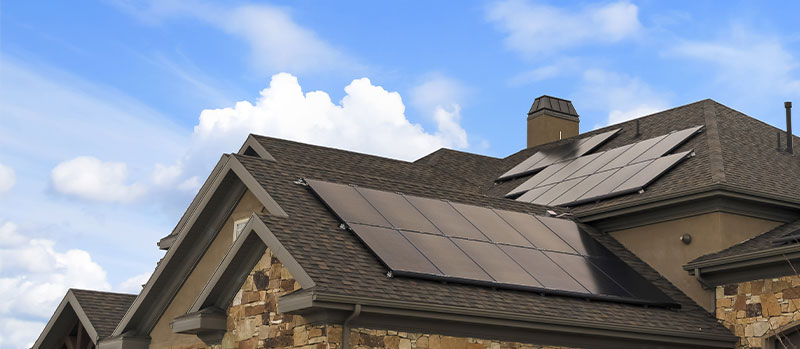What are the financial benefits of going solar?
SECTION TWO
Your Initial Investment
Your Initial Investment
There can be large discrepancies in the cost of residential solar panels. The final cost is determined by several factors.
Solar panels on a typical American home do require a significant initial investment.
A new solar array installed on your home can run as low as $5,000 or upwards of $40,000 —depending on several factors.
The number of solar panels you need to buy depends on how much energy you use and the amount of sun your rooftop receives annually. Prices for installation also depend on the cost of your labor and demand in your area. In South Carolina, the cost of a 5kw to 6kw solar array will run about $15,000 to $18,000. Add to that the cost of installation, labor, inverters, solar mounts, and other line items, and you should plan to invest around $25,000 to $30,000 in an average system.
When Will I Break Even?
Here's most peoples' train of thought about the financial aspect of going solar:
- Having no monthly electric bill? That's good.
- Federal tax benefits? That's also good.
- State tax benefits too? That's very good!
- Investing $30,000? Whoa. That's a big chunk of change. I'm not sure about this idea.
There's no magic formula to determine exactly how long will it take for you to break even on your investment in residential solar energy, but we can run a few numbers to get a general idea of lifetime savings.
The average power bill in the state of South Carolina is roughly $150. That's about $54,000 in energy costs over the life of your house. The average residential solar array costs $25,000-$30,000. Since our goal is to use your array to completely eliminate your power bill, you're looking at as much as $29,000 in electricity savings over the life of your house!
Most people see a net financial gain in just 6-10 years, but your mileage may vary. Most customers see strong financial returns, but some people just aren't in a good position to make solar work for their home. That's why it's important to sit down with one of our representatives to consider all the financial benefits of solar against your investment before you sign a contract.

SECTION THREE
Tax Incentives
Tax Incentives
There are currently federal and state tax incentives for adding a solar array to your home.
Many of these incentives expire in the next few years, so you may need to act quickly.
Federal Tax Incentives
Adding a solar array to your home can reduce your federal income taxes.
The IRS grants a tax credit, which allows you to deduct part of the cost of your solar system from your taxable income. At the present rate, you can reduce your taxable income by 26% of the cost of your solar panels.
That number could change in 2024 when the current law expires. Then, Congress will have to either discontinue the tax credit or renew it. If they renew it, Congress could choose either to increase or lower the tax benefit.
South Carolina Tax Incentives
South Carolina also offers taxpayers a non-refundable tax credit for installing solar panels. Current tax law allows consumers to deduct 25% of the total cost of solar panels up to $35,000 or 50% of that year's tax liability, whichever is less. We encourage you to discuss this with your CPA, who will have the most up-to-date information and can advise you on your unique situation, as well as how the incentives are structured.
| Incentive | Value |
|---|---|
| Federal Solar Investment Tax Credit (ITC*) | The 26% federal tax credit is available for purchased home solar systems installed by December 31, 2022. |
| South Carolina Solar Tax Credit | The 25% state solar tax credit is available for purchased home solar systems in South Carolina (max. $3,500 state tax reduction). |
SECTION FOUR
Benefits of Bundling a New Roof & Panels
Benefits of Bundling a New Roof & Panels
Possibly the ideal bundle for your home, a new roof plus solar panels can save you big!
It may be time to redo your roof.
A composition shingle roof, which most homes have, needs replacing once every 12-20 years. Asphalt shingles should be replaced once every 15-30 years and wood shingles need a refresh every 20-25 years.
If it's time to replace your roof anyway, let’s talk about getting you an inspection. We are proud to partner with Anderson Metal Roofing, one of the best roofing contractors in the Upstate. One of the benefits of having a roofing contractor install your solar panels is that you can rest assured that the installation process will be done right, and that you won’t have to worry about damage to your roof—or even the inside of your home!
By bundling the roof replacement with your new solar system, you may also be able to claim some of the associated costs as part of your solar energy tax credit. We can help you assess these numbers, and we encourage you to talk with your tax professional to find out what makes the best sense for you.

SECTION FIVE
How to Finance Your Residential Solar Array
How to Finance Your Residential Solar Array
Solar energy requires a large financial investment.
There are several financing options available to help cover the cost of going solar.
Do you need help financing your solar array?
If you want to invest in solar but can't afford to shell out $30,000-plus, here are financing options are available to you:
- Obtain a home-improvement loan through our partner Mosaic. They offer competitive APRs and low payment options, plus no prepayment penalties! You can typically borrow between $5,000 and $55,000.
- Take out a PACE loan. A Property Assessed Clean Energy (PACE) loan provides funding with a long payback calendar. Homeowners pay their PACE loans through their property assessments.
- Talk to your banker about a HELOC. A Home Equity Line of Credit (HELOC) provides cash using the equity in your home as collateral. Typically, you can borrow up to 85% of the equity in your home.
- Consider a HomeStyle Energy mortgage. This new program from Fannie Mae can help homeowners complete clean energy upgrades. All Fannie Mae lenders can participate in the HomeStyle Energy mortgage program.
Partner with Foothills Solar Plus
You don’t have to navigate all these choices by yourself.
Foothills Solar Plus is here to help you find the best options for your situation. We’ll be by your side through every step of the process and for long afterward, just in case you need ongoing support. Give us a call today at (864) 775-8508 or fill out our online form to request a consultation.


